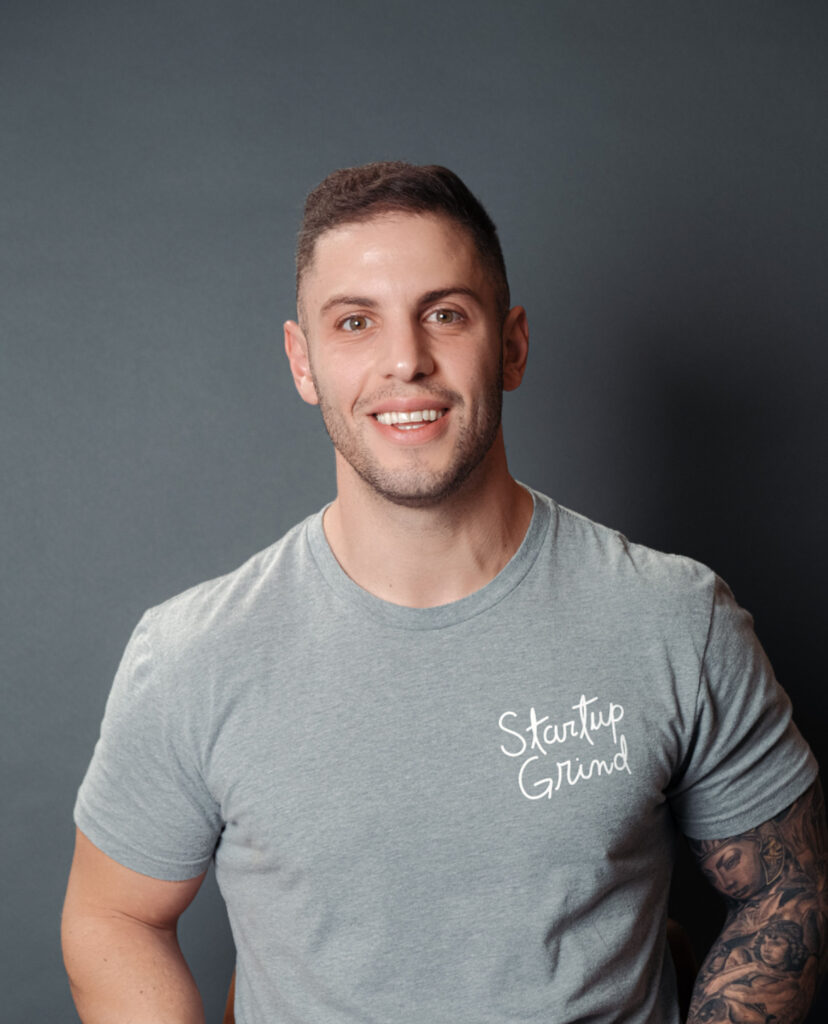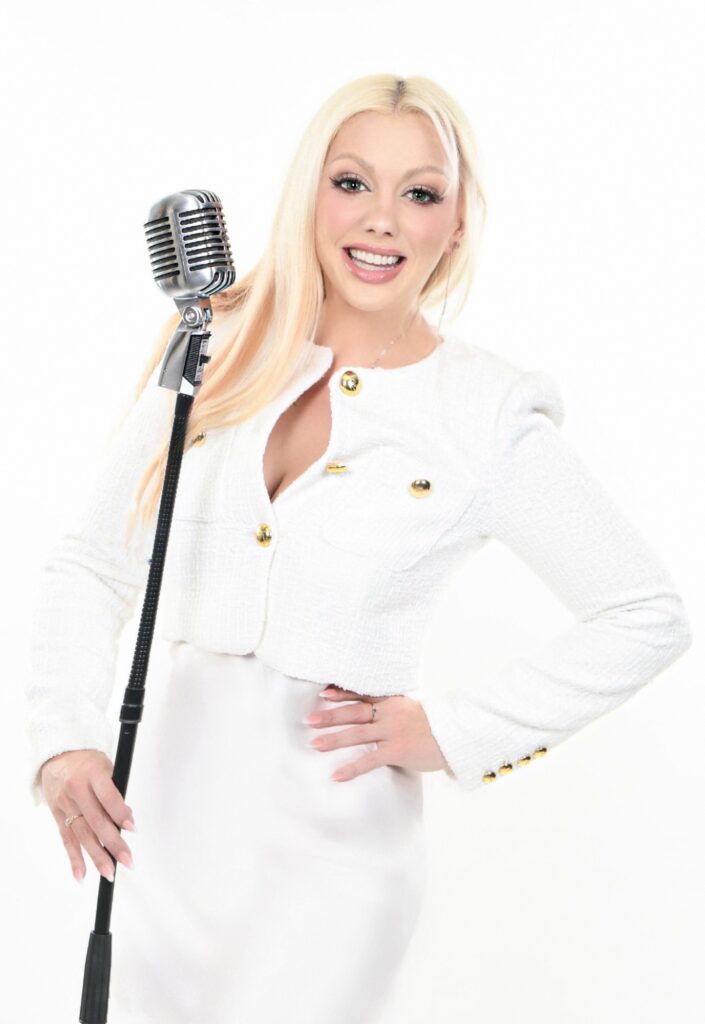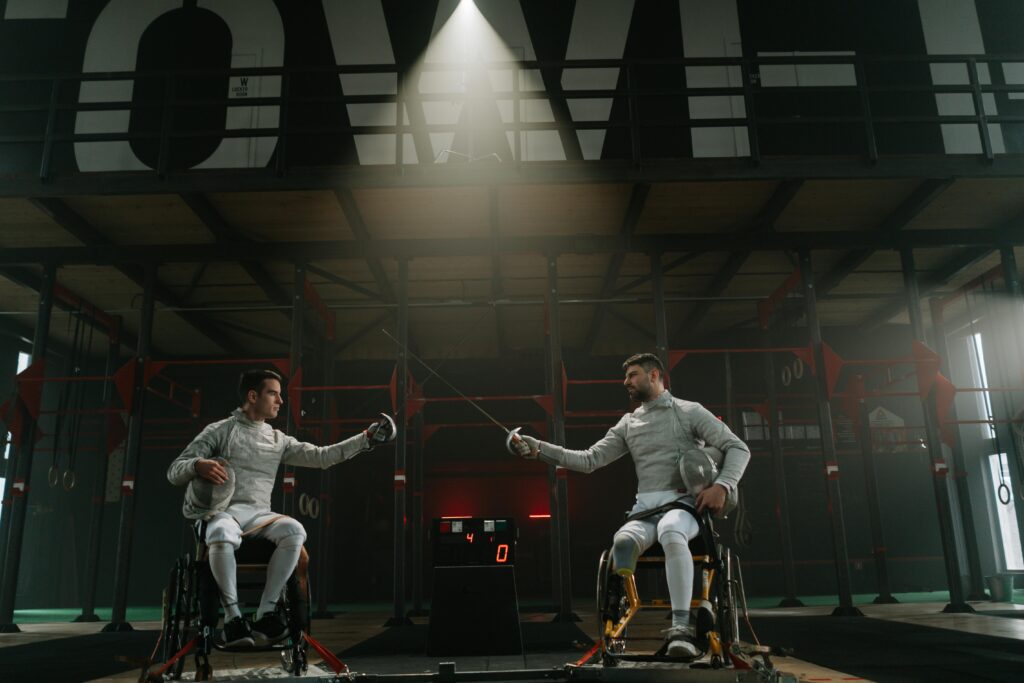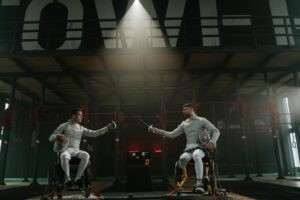Michael Savvides, an accomplished entrepreneur and business leader originally from South Africa, now residing in Los Angeles, California. He boasts a distinguished career characterized by successful startup ventures both in South Africa and the United States. His journey encompasses pivotal roles, from spearheading ParkUpp, a property technology app, to serving as the Startup Grind Director in LA, and ascending to the Vice Presidency as an early team member at Quickmed Diagnostics, a thriving High Complexity Laboratory organization.
Currently, Michael assumes the mantle of CEO and Co-Founder at Imagine Biotech, an innovative enterprise situated at the intersection of biotech capital investment and risk mitigation. Imagine Biotech collaborates with Biotech VCs, investors, and forward-thinking startups, playing a crucial role in mitigating risks associated with capital allocation in biotech investments. Its primary aim is to reduce the costs entailed in drug development across the USA and Europe.
The company achieves this by employing early-stage evaluations and precise predictions of molecular compatibility, significantly enhancing the ability to anticipate the efficacy of new technologies or drug candidates. Leveraging Machine Learning and AI, Imagine Biotech harnesses the expertise of computational biology and clinical pharmacology specialists, pioneering a transformative approach to mitigate risks in drug therapeutic development.
Michael’s professional trajectory isn’t solely defined by his impressive career milestones; it’s also deeply influenced by a personal health experience in 2020 involving a protein-based drug that significantly impacted his life.
This experience became a driving force for Michael, propelling him toward a mission to shape the future of biotech drug therapeutic investment. His commitment to revolutionizing drug development is evident in Imagine Biotech’s collaborations with industry stakeholders, introducing groundbreaking approaches that have the potential to redefine standards in allocating millions of dollars to drug candidates and technology projects.
We recently got a chance to delve into his approaches and what propels him forward, and here’s what it looked like.
1. Can you share a bit about your early life in South Africa and how it shaped your entrepreneurial journey?
Growing up in South Africa was an incredible experience that shaped my entrepreneurial journey in profound ways, I believe. The environment I was raised in fostered a strong sense of resilience and adaptability, much like most South Africans would admit to. From a young age, it appears I would apply entrepreneurial characteristics. When I reflect on it, I recall when I was around 10 or 11, I would listen to the latest music hits on radio chart shows through a boom box in my bedroom. With those boom boxes, you could record what was being aired on the radio directly onto a cassette tape, so I would record 8 to 10 songs on a blank tape and go sell it at school to kids in my class.
I was not the most studious individual in high school, to be honest; I was probably a C student. I was very much focused on taking apart and building gadgets at home, as well as hanging out with my older brother Andre’a Savvides, a true inspiration and a person whom I absolutely look up to, he has a great career ahead of himself.
Most of my time as a teenager was dedicated to sports like tennis and, of course, my true love, football (soccer). I was by no means ever good enough to even think of becoming a professional, but the camaraderie and competitiveness extracted from those experiences have helped shape who I am today – I learnt the importance of believing in yourself, even when others do not. My grades in Matric (final year of high school) were okay, nothing to brag about. I had to rewrite physics and math the following year to get into the course I wanted to study at university.
I did that early on the following year, and I did achieve the results I needed, thankfully. But seeing all my friends start University before me, where I had to wait till the next year to start, ignited something in me that you cannot believe. I’ll never forget that feeling of failure. That was the turning point; I said, “F” that, which was the catalyst to the constant drive, ambition, and passion just to win! I had a thought that “I will never let failure define who I am again,” and I haven’t.
While waiting to start University the next year, at 18 I started working as a construction foreman, with zero experience but enthusiasm and genuine curiosity.
Every day at work, I would get after the work with the low-skilled labor, purely to show I can do what they are doing with no problem at all. From pouring concrete, to carrying windows, operating equipment, laying bricks, I learned it all, and that journey allowed me to be humble, quieten the ego, and mostly taught me what hard work is – I absolutely loved it. The next year I went to university, and 8 years later I ended up with 4 degrees and two master’s degrees from South Africa and England, finishing in the top 5 students most years.
I was not the smartest in the class; on the other hand, no one could outwork me. I refused; I had something to prove to myself – each year I would up the ante. I owe a lot of my success to my parents and brother for the support and encouragement throughout my career. They did everything they could to provide me with the opportunities to succeed in life. I am forever indebted to them. While studying, my friend Johno Bagley and I would DJ and birthdays and weddings and eventually host some events to make cash. I learned how to network and, most importantly, step outside my comfort zone.
The ironic thing about going to university is one would assume having these degrees typically leads to a fully-fledged career climbing up the corporate ladder, which I started to do with an amazing company, Maersk, but I always knew I was destined to do things on my own terms eventually. In 2017, I was part of a graduate programme where 70 individuals from around the world were provided an amazing opportunity with the Go With Maersk Programme. I had some incredible years, traveling the world and making amazing relationships.
Through all of this, I realized my greatest asset: my ability to build genuine rapport with people. I absolutely love meeting new people and showing sincere interest in their lives. Alex Hormozi speaks about this quite a lot. People love to feel heard – I use this skill every day. I had the opportunity to travel a lot throughout my 20s for fun, for academia, and for work. I always knew I would end up leaving South Africa for bigger things; I felt very restricted there. I believed I would need to move to the biggest playground for entrepreneurs and dreamers if I am to reach my full potential, and here I am now living in Los Angeles, California, having achieved some cool things.
I am by no means where I want to be; that said, I am focused on the journey and not any end goal – I am in love with the process, which took me many years to truly understand!
Lastly, my dream is to go to space one day, and I ain’t going to do that from Johannesburg, South Africa! – he laughs…
2. Your career has seen successful and some unsuccessful ventures. How do you navigate transitions and identify opportunities?
On the topic of transitioning across industries first, great question firstly, one in which I feel I am well equipped to answer, purely based on the diverse career and roles I have taken on across various industries. I have had roles in construction, events, property technology, outdoor media advertising, shipping and logistics and of course healthcare.
Most people would suggest not focusing on ‘one niche’ will be detrimental to your career, and perhaps for some people that stands true, but for me, I always loved the fact when people would doubt or more so question my choice of career or project I would effectively take on and pursue.
I must state, I by no means have been successful in each venture I have taken on, however, I genuinely love setting out to challenge myself and not prove other people wrong, but rather prove myself right.
If I had to listen to people in regards to the choices I followed in regards to the various startups, companies and projects I have undertaken so far, I truly believe I would not only have remained stagnant, but more so found myself to be unhappy, based upon what I believe to be other people’s insecurities or perhaps jealousy for not going out to pursue or take ethe risks that I have taken to get to where I am. I have taken massive risks throughout my career, involved in some incredible projects with the most amazing people. For example, ParkUpp, one of the first true Tech startups I was involved with my incredibly smart, ambitious, and relentless co-founder Palesa Moloi – I could not have asked for a better co-founder, she was amazing to work with.
ParkUpp, is an online marketplace where we would connect commercial property owners with underutilized parking, to people that needed parking on a long and short-term basis. We never liked to admit it, but some deemed it as the “Airbnb” for parking. An incredibly difficult company to get off the ground, a company that much of the success I owe to Palesa and the team we had formed, the company was later sold to a well-known property fund in South Africa.
Another company I absolutely loved, was Adrail SA, which later became Untapped Media, where my co-founders and good friends Lloyd Matthew and David Willoughby, who to be fair to them brought me in after the idea was formed to grow the company from inception, where they initially tried to get it off the ground some years before with various hurdles. With Adrail, we created an innovative polyurethane film material like no other, that could be applied to black escalator handrails, where brands could now advertise and market themselves on escalators on site throughout shopping malls, casinos, and airports in South Africa, attempting to service some of the largest outdoor media companies in the country.
An amazing idea and invention, but we struggled to truly scale the product and business based on various factors associated with the production costs to get a material to withstand a 3-month marketing campaign, the proliferation of social media at the time and more so the difficulty in applying the film at large scale. A venture that I really wish had worked, where people still to this day encourage us to restart it. As opposed to looking at it as a failure, I look at it as an amazing learning experience that shaped who I am today, where Lloyd and David have gone on to do incredible things in their respective careers – I am proud of what we did.
Of course, identifying and assessing opportunities as a young entrepreneur, you naturally gravitate towards business ideas in which you believe will ‘make millions’, where you very quickly learn that 90% of startups will fail. The approach I take on now is relatively different now after the successes and failures I have amassed, but one thing that stands true to me, and I would encourage others wanting to follow their dreams or ambitions to go out and do your own thing is, back yourself and know what you are good at!
It’s crucial to prioritize our own aspirations and goals without being overly concerned about the opinions of others, especially those who haven’t actively pursued their own dreams. What truly matters is staying true to ourselves and having the courage to chase our ambitions, regardless of external judgments or perspectives. Ultimately, our journey and fulfillment come from following our passions and striving towards our own visions of success.
As I always say, “To The Moon!”
3. What inspired the founding of Imagine Biotech and what brought upon the interesting name?
The establishment of Imagine Biotech owes its existence to several converging factors that fell into place at the opportune moment. Among these, my involvement in the healthcare and laboratory sector over the past few years played a pivotal role. During this time, my genuine curiosity led me to explore various groundbreaking innovations outside the scope of my work at the time.
In 2020, I faced a personal health experience, though I won’t delve into its specifics at this time. It unequivocally steered me toward a profound understanding of drug discovery. This journey gave me an interesting perspective on the intricate phases involved in developing a novel drug hypothesis, from its conception to FDA approval and eventual widespread distribution. I came to realize the individualized nature of drug compatibility in humans, underscoring the significance of proteins in medication and their vital role in life itself. Indeed, life wouldn’t exist without proteins, and my comprehension grew regarding the prevalence of protein-based drugs for various human ailments.
The medication that effectively treated my condition happened to be a protein-infused drug. This came after attempting several other drugs, none of which yielded the intended effects. I became fascinated, or more so obsessed, with understanding drug discovery. Soon, I understood and became acquainted with the exorbitant costs associated with and the considerable time inherent in bringing a drug to market. Regrettably, sometimes individuals do not survive long enough due to the numerous difficulties drugs must overcome before reaching the market. Motivated to effect change, I grappled with how I could exert influence in this domain – 95% of drugs will fail before FDA approval, costing investors tens if not hundreds of millions of dollars.
Some time ago, fate brought me to meet my now co-founder, Dr. Joseph Nowoslawski, at an event in Salt Lake City, Utah. Dr. Nowoslawski, a distinguished and now retired emergency medicine physician and healthcare executive, is the founder of American Hospital Services Group (AHSG). His extensive involvement in biotech venture capital investing, coupled with memberships in various medical and scientific organizations, highlights his commitment to philanthropic fundraising projects in the USA.
When Joseph introduced me to AI-assisted analysis and prediction of protein folding interactions, it triggered a profound reflection on how a seemingly insignificant protein had irrevocably altered the course of my life. We later focused on the concept of ADMET (Absorption, Distribution, Metabolism, Excretion, and Toxicity). ADMET prediction involves assessing how a drug is absorbed, distributed, metabolized, and excreted in the body, along with predicting potential toxicity. This process helps researchers identify and evaluate the behavior of a drug early in development, using computational models and in vitro tests. The goal is to ensure that drugs are effective, safe, and well-tolerated before advancing to costly and time-consuming clinical trials.
A few years ago, I became acquainted with breakthroughs like Alpha Fold 2 by DeepMind, where AI-assisted analysis and prediction of protein folding hinted at transformative changes in medication development and testing. The ability to analyze and assess protein therapy interactions and efficacy brought a glimmer of hope. This advancement could save billions of dollars and years of time, redirecting resources toward more promising therapies, marking a pivotal phase in pharmaceutical innovation.
We soon decided to band together, creating a company that can not only assist biotech investors and founders but also offer sophisticated technical analysis presented in extensive business reports. These reports equip our customers when conducting imperative due diligence decisions prior to capital investment in biotech ventures, predicting new technology or drug candidates’ efficacy early on.
Regarding the name “Imagine Biotech” its genesis traces back to Alan Turing’s remarkable legacy, the famous mathematician, and father of computer science, marrying AI’s transformative power with biotech venture capital. Turing’s wisdom has always resonated with me since watching the movie The Imitation Game, making it fitting to infuse it into this extraordinary venture myself and Dr. Nowoslawski would embark upon.
A famous quote from Alan Turing that I live by and that inspired the name is, “Sometimes it is the people no one can imagine anything of who do the things no one can imagine.” This quote encapsulates our collective vision—a pursuit of untapped therapeutic possibilities, safeguarding investor capital while revolutionizing drug investment risk mitigation and due diligence.
4. Can you elaborate on the role of machine learning and AI, together with Bioinformatics in Imagine Biotech’s approach to the solution you offer your customers?
Our primary objective is to significantly impact and contribute to cost reduction within the sphere of drug development and technologies for biotech investors and startup founders, while concurrently streamlining the process for bringing new pharmaceuticals to market.
Through cutting-edge AI and machine learning, we assist in de-risking biotech investments by facilitating early assessment and actual probability of molecular compatibility, predicting a new technology or drug candidates’ efficacy – determining the drug’s likelihood of success early on for investors and founders. We offer sophisticated technical analysis, equipping our customers when conducting imperative due diligence decisions prior to capital allocation and investment in biotech ventures. We have the capability to anticipate latent issues in pre-clinical or clinical trials, potentially saving investor capital and circumventing some previously mandatory animal trials.
I’m particularly enthusiastic about my involvement in this endeavor, especially considering the 2023 FDA Modernization Act. This recent legislation amends the FDA and Cosmetic Act, empowering sponsors of innovative drugs to utilize “specific alternatives to animal testing” during preclinical trials for novel therapeutics. These alternatives encompass cell-based assays and computer models, offering a pathway to seek an exemption from the Food and Drug Administration for assessing a drug’s safety and effectiveness. Put simply, animal trials are no longer mandatory in certain instances when testing the efficacy of propose new drug candidates’, however, it does not completely circumvent the need to test on animals, which is something I hope we can eventually work towards completely eradicating one day.
The team we have put together holds a strong track record supporting biotech startups and conducting thorough due diligence prior to the launch of Imagine Biotech.
In an era witnessing significant strides in Machine Learning and AI, my co-founder Joseph and I recognized the immense potential of AI-driven Protein Folding Prediction amongst other solutions like ADMET prediction that we offer biotech VCs attempting to raise capital for specific projects. This innovation serves as an early warning system for capital deployment in biotech and therapeutics, ensuring investor capital can be allocated effectively, but in molecular biology, there are never guarantees when it comes to this unfortunately.
I am super excited and optimistic about the future, let’s see what we can achieve!
5. As a leader, how do you foster innovation and collaboration within your diverse teams you lead?
Though Imagine Biotech is a relatively young venture, reflecting on my previous roles leading teams—where I’ve overseen nearly 100 individuals across three states—the primary focus for me has always been fostering an environment where everyone’s voice matters. I believe in granting responsibility to individuals, even if traditional leadership might hesitate due to their perceived lack of experience. It’s a delicate balance; allocating too much responsibility and accountability can either challenge or overwhelm some, but I choose to believe in people’s capacity to learn from their mistakes.
This approach stems from my own early career experiences, where I often yearned for this kind of support, something that wasn’t always prevalent due to conventional leadership or managerial styles. Nonetheless, my passion lies in leadership, and with every team I lead, I strive to implement innovative leadership practices to maximize their potential. It’s not without its challenges, but I’ve found that involving team members in decision-making and empowering them with autonomy often yields considerable success.
My goal is to see team members flourish, bringing their unique thoughts and ideas to the table. Restraining individuals based on personal insecurities or limitations is counterproductive. Hiring someone implies they possess skills or insights you might lack; if not, it’s about creating opportunities for them to excel and eventually surpass you, allowing you to focus on other vital aspects of the business.
As I’ve progressed, I’ve come to realize that people truly are our greatest asset. This belief only strengthens with time.










